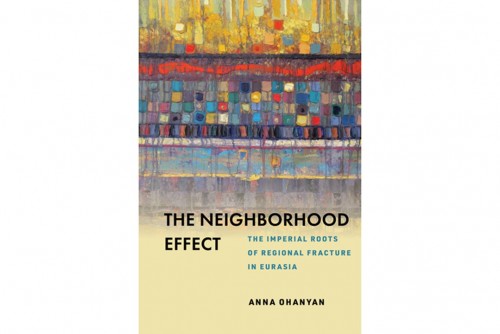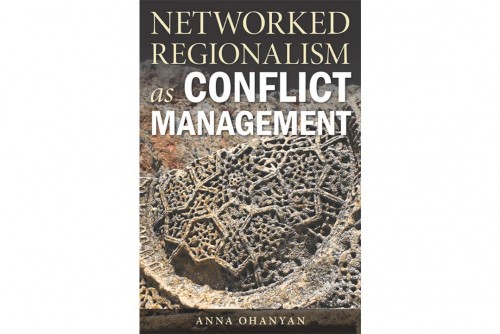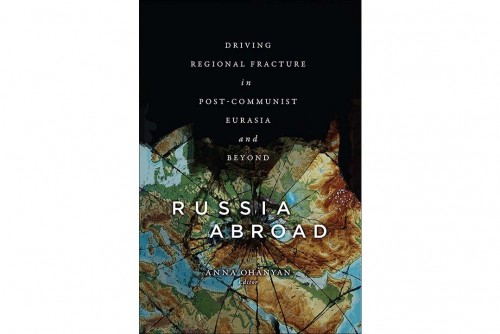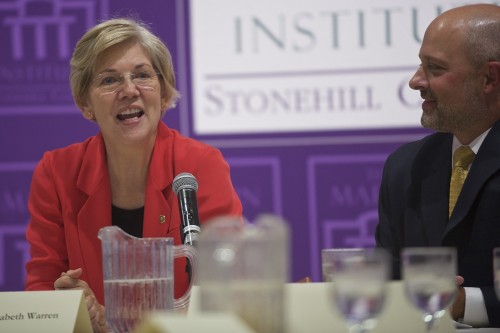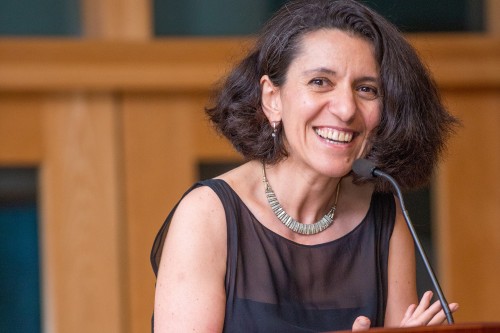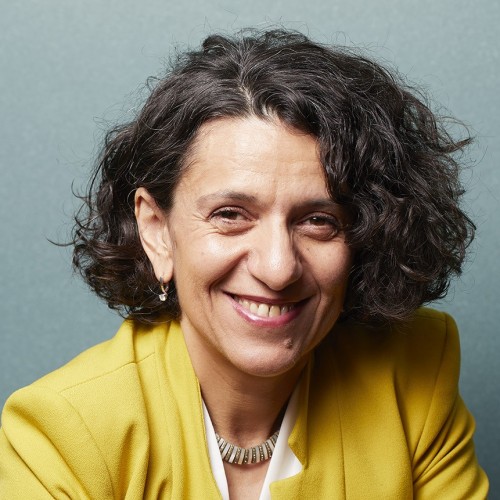
Anna Ohanyan
Professor of Political Science, Richard B. Finnegan Distinguished Professor of Political Science and International Relations
Biography
Anna Ohanyan is the Richard B. Finnegan Distinguished Professor of Political Science and International Relations at Stonehill College. She is also a Nonresident Senior Scholar at the Carnegie Endowment for International Peace/Russia and Eurasia Program, and a two-time Fulbright Scholar to South Caucasus. She has authored and (co)-authored five books, which include Russia Abroad: Driving Regional Fracture in Post-Communist Eurasia and Beyond, an edited volume published by Georgetown University Press in 2018, and Networked Regionalism as Conflict Management, published by Stanford University Press in 2015. Her latest book is titled The Neighborhood Effect: The Imperial Roots of Regional Fracture in Eurasia, forthcoming with Stanford University Press in 2022.
Her articles appeared in Nationalities Papers, Communist and Post-Communist Studies, International Studies Review, Peace and Change, Conflict Resolution Quarterly, and Global Governance, among other journals. She has also contributed to The Washington Quarterly, Washington Post, National Interest, Foreign Policy, Al Jazeera, and Wilson Quarterly.
Prof. Ohanyan served as a doctoral fellow at the Kennedy School of Government at Harvard University (2002-2004), and her research has been supported by IREX, the Woodrow Wilson International Center for Scholars, the German Marshall Fund, the U.S. State Department, and Eurasia Foundation among others. She has consulted for numerous organizations such as the United Nations Foundation, the World Bank, the National Intelligence Council Project, the U.S. Department of State, the Carter Center, and USAID. Her work has taken her across the globe, from Northern Ireland to the Balkans, Russia, and the South Caucasus.
Prof. Ohanyan served as the Chair of the Political Science and International Studies Department at Stonehill College (2014-2017) and there established the Learning Inside-Out Network (LION) international internship program in Global Security Studies.
Education
- Ph.D. in Political Science, May 2004, Syracuse University, Syracuse, NY
- M.A. in Political Science, May 1999, Syracuse University, Syracuse, NY
- M.S. in Conflict Resolution, August 1998, Nova Southeastern University, Ft. Lauderdale, FL
Areas of Expertise
Titles
Professor of Political Science, Richard B. Finnegan Distinguished Professor of Political Science and International Relations
Departments
Political Science & Intl Relat
Recent Media Appearances and Analysis
-
Inside Story | Why is there new rising tension between Armenia and Azerbaijan?
Professor Ohanyan explores the political dispute between Azerbaijan and Armenia over Nagorno-Karabakh, a result of the chaotic rapid collapse of the USSR.
-
Democracy Now: Armenia Demands End to Azerbaijan Blockade Amid Accusations of Genocide
Professor Ohanyan spoke with Democracy Now on the growing humanitarian crisis in Nagorno-Karabakh, a region of Azerbaijan home to ethnic Armenians.
-
NBC Boston: Mass. college professor sanctioned by Russia
Professor Ohanyan, an expert in Russian foreign policy, born in the former Soviet Union, discusses what it is like to be on a list of 500 Americans sanctioned by Vladimir Putin.
Books and articles
By Anna Ohanyan
Stanford University Press, 2022
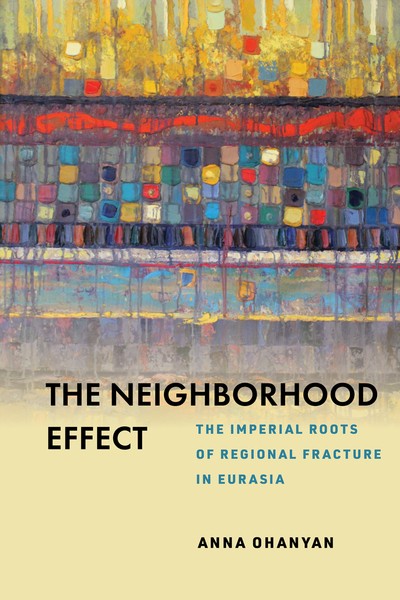
Why are certain regions of the world mired in conflict? And how did some regions in Eurasia emerge from the Cold War as peaceful and resilient? Why do conflicts ignite in Bosnia, Donbas, and Damascus—once on the peripheries of mighty empires—yet other postimperial peripheries like the Baltics or Central Europe enjoy quiet stability?
Anna Ohanyan argues for the salience of the neighborhood effect: the complex regional connectivity among ethnic-religious communities that can form resilient regions. In an account of Eurasian regional formation that stretches back long before the nation-state, Ohanyan refutes the notion that stable regions are the luxury of prosperous, stable, democratic states. She examines case studies from regions once on the fringes of the Habsburg, Ottoman, and Russian Empires to find the often-overlooked patterns of bonding and bridging, or clustering and isolation of political power and social resources, that are associated with regional resilience or fracture in those regions today.
With comparative examples from Latin America and Africa, The Neighborhood Effect offers a new explanation for the conflicts we are likely to see emerge as the unipolar US-led order dissolves, making the fractures in regional neighborhoods painfully evident. And it points the way to the future of peacebuilding: making space for the smaller links and connections that comprise a stable neighborhood.
Find Neighborhood Effect: The Imperial Roots of Regional Fracture in Eurasia
By Anna Ohanyan (Co-Editor)
Bloomsbury, 2020
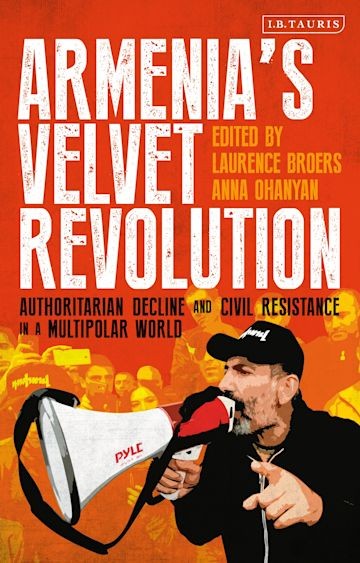
In April 2018, Armenia experienced a remarkable popular uprising leading to the resignation of Prime Minister Serzh Sargsyan and his replacement by protest leader Nikol Pashinyan. Evoking Czechoslovakia's similarly peaceful overthrow of communism 30 years previously, the uprising came to be known as Armenia's 'Velvet Revolution': a broad-based movement calling for clean government, democracy and economic reform.
This volume examines how a popular protest movement, showcasing civil disobedience as a mass strategy for the first time in the post-Soviet space, overcame these unpromising circumstances. Situating the events in Armenia in their national, regional and global contexts, different contributions evaluate the causes driving Armenia's unexpected democratic turn, the reasons for regime vulnerability and the factors mediating a non-violent outcome. Drawing on comparative perspectives with democratic transitions across the world, this book will be essential reading for those interested in the regime dynamics, social movements and contested politics of contemporary Eurasia, as well as policy-makers and practitioners in the fields of democracy assistance and human rights in an increasingly multipolar world.
By Anna Ohanyan (Editor)
Georgetown University Press, 2018
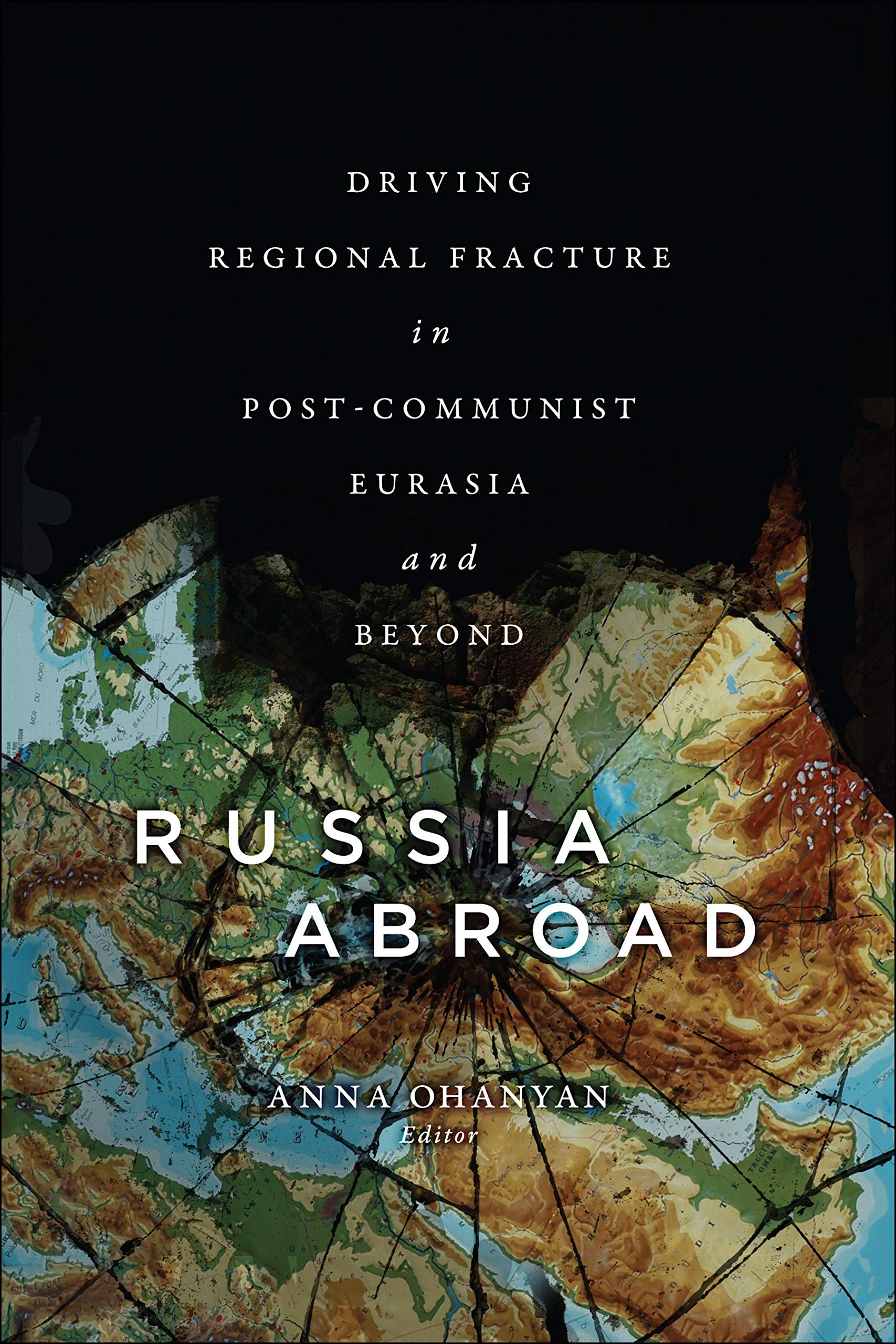
While we know a great deal about the benefits of regional integration, there is a knowledge gap when it comes to areas with weak, dysfunctional or nonexistent regional fabric in political and economic life. Furthermore, deliberate “un-regioning,” applied by actors external as well as internal to a region, has also gone unnoticed despite its increasingly sophisticated modern application by Russia in its peripheries.
This volume helps us understand what Anna Ohanyan calls “fractured regions” and their consequences for contemporary global security. Ohanyan introduces a theory of regional fracture to explain how and why regions come apart, consolidate dysfunctional ties within the region, and foster weak states. Russia Abroad specifically examines how Russia employs regional fracture as a strategy to keep states on its periphery in Eurasia and the Middle East weak and in Russia's orbit. It argues that the level of regional maturity in Russia’s vast vicinities is an important determinant of Russian foreign policy in the emergent multi-polar world order.
Many of these fractured regions become global security threats because weak states are more likely to be hubs of transnational crime, havens for militants, or sites of protracted conflict.
The regional fracture theory is offered as a fresh perspective about the post-American world and a way to broaden international relations scholarship on comparative regionalism.
Review by Galina Bogatova of Florida International University
Review by Suvi Kansikas of University of Helsinki
Review by Pavel Baev of Peace Research Institute of Oslo
Review by Lucien Frary of Rider University
Find Russia Abroad: Driving Regional Fracture in Post-Communist Eurasia and Beyond
By Anna Ohanyan
Stanford University Press, 2015
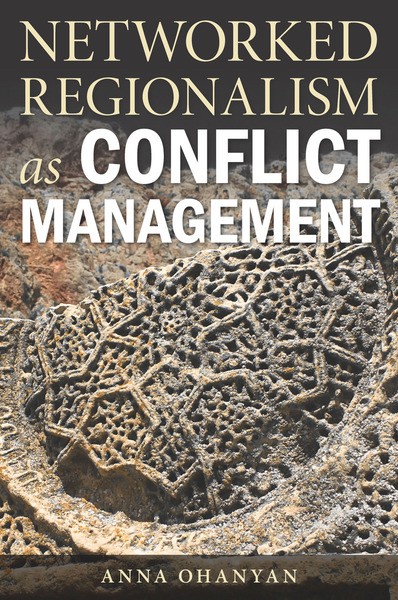
Most regions of the world are plagued by conflicts that are made insoluble by a confluence of complex threads from history, geography, politics, and culture. These "frozen conflicts" defy conflict management interventions by both internal and external agents and institutions. Worse, they constantly threaten to extend beyond their local geographies, as in the terrorist bombings in Boston by ethnic Chechens, or to escalate from skirmishes to full-scale war, as in Nagorno-Karabakh. Consequently, such conflicts cry out for alternative approaches to the classic, state-focused, and sovereignty-based conflict management models that are practiced in traditional diplomacy—which most often produce rather short-term, ad hoc, fragmented interventions and outcomes.
Drawing upon the cases of the South Caucasus, the Western Balkans, Central America, South East Asia, and Northern Ireland, Networked Regionalism as Conflict Management offers a theoretical and practical solution to this impasse by arguing for regional collective interventions that involve a long-term reengineering of existing conflict management infrastructure on the ground. Such approaches have been attracting the attention of scholars and practitioners alike yet, thus far, these concepts have rarely involved more than simple prescriptions for regional cooperation between grassroots actors and traditional diplomacy. Specifically, says Anna Ohanyan, only the cultivation and establishment of regional peace systems can provide an effective path toward conflict management in these standoffs in such intractably divided regions.
By Anna Ohanyan
Palgrave Macmillan: New York, NY, 2008
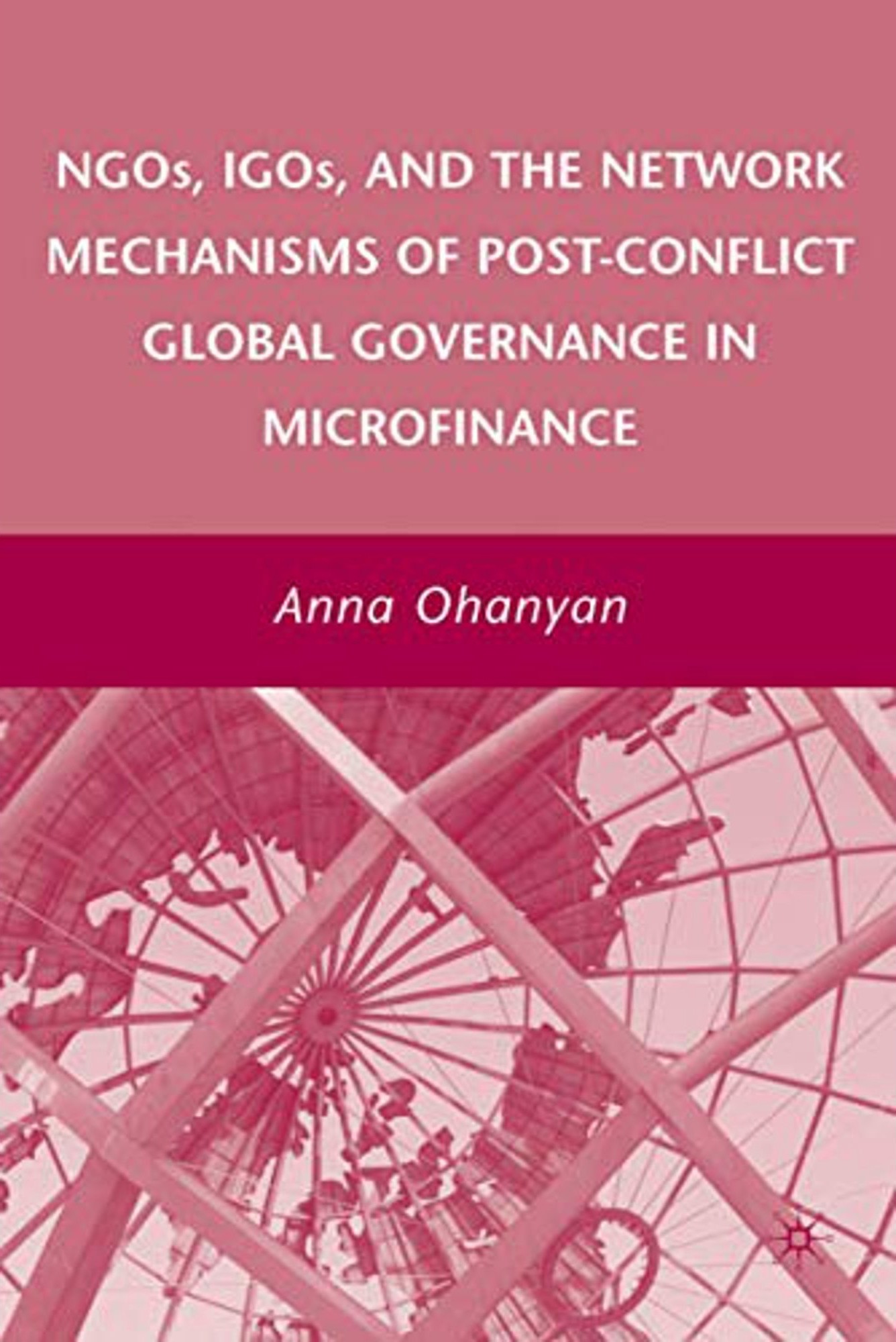
Partnerships between international organizations and NGOs are central to delivering services in post-conflict settings. This book examines how such partnerships and policy networks comprising large international organizations and NGOs generate policies to heal the wounds of war-torn communities and build institutions of the post-conflict state for long-term governance. Exploring the international community’s application of microfinance in post-conflict Bosnia and Herzegovina, this book follows how these policies were subsequently transferred to and modified for Kosovo and Afghanistan. Drawing on multiple, varied cases this book offers a new framework of policy analysis in post-conflict zones, and bridges global policy studies with conflict resolution.
- “The Regional Roots of Global Peace: The Problem of Regional Fracture,” Global Governance: A Review of Multilateralism and International Organizations, 24, 3 (2018): 371-390.
- (Forthcoming) “NGOs in a Networked Diplomacy and New World (Dis)Order,” in Rethinking International Organizations: Pathology and Promise, 2nd edition, edited by Dennis Dijkzeul and Yves Beigbeder. Berghahn Books.
- “How Deep Is Dayton? The Regional Impact of Dayton Accords,” Woodrow Wilson Quarterly, Winter (2016) http://wilsonquarterly.com/quarterly/the-post-obama-world/how-deep-is-dayton/
- “On Networks, International Organizations, and Institutional Hegemony,” Journal of International Organizations Studies 6, 1 (2015)
- “Network Institutionalism: A New Synthesis for NGO Studies,” in The NGO Challenge for International Relations Theory, edited by William DeMars and Dennis Dijkzeul. Routledge, 2015.
- "Transfer up or down? Dialogue groups between Turkish and Armenian communities in the United States," Conflict Resolution Quarterly 29, 4 (2012): 433-460.
- "Network Institutionalism and NGO Studies," International Studies Perspectives, 13 (2012): 366-389.
- "The Effects of Global Policy Networks on Peacebuilding: Framework of Evaluation," Global Society, 24, 4, October 2010.
- "Policy Wars for Peace: Network Model of NGO Behavior," International Studies Review Vol. 13, No. 3, 2009.
- "On Money and Memory: Political Economy of Cross-Border Engagement on the Politically Divided Armenia-Turkey Frontier," Conflict, Security and Development Vol. 7, No. 4, 2007.
- "State-Society Nexus and Gender" in Women and Politics Around the World: A Comparative Encyclopedia, edited by Joyce Gelb and Marian Lief Palley. Publisher: ABC-CLIO, 2008.
- "The Promise and the Perils of Dual Citizenship: The Case of Post-Communist Armenia," Diaspora: Journal of Transnational Studies 13.2/3 (2004): 279-306. © 2007
- "The Politics and the Conflict Resolution Potential of Georgian-Abkhaz Interethnic Peacecamp, 1998-2001" Peace and Change, Vol. 30, No. 1, 2005.
- "Nationalism in a Globalizing Context: Governance-Focused Intervention in the Divided Plural Societies of the Developing World," International Journal on World Peace, Vol. 20, 2003.
- "The Governance Potential of NGOs and Multi-Sectoral Partnerships in Armenian Public Sector: Lessons from Microcredit NGOs of Bosnia and Herzegovina," Armenian Journal of Public Policy, Vol. 1, No. 1, 2003.
- "Global Public Policy Processes in Post-Conflict Regions: The Case of Microfinance Networks in Bosnia and Herzegovina," International Studies Perspectives, Vol. 3, No. 4, 2002.
- "Negotiation Culture in the Post-Soviet Context: An Interdisciplinary Perspective," Conflict Resolution Quarterly Vol. 17, No. 1, Fall 1999.
Ukraine and Russia, On-air interview/TV, Bloomberg News, February 6, 2022
Ukraine and Russia, On-air interview/Radio, WURD, January 25, 2022
Armenians Flee Nagorno-Karabakh After Six-Week War With Azerbaijan, On-air interview/Radio, KVPR, November 20, 2020
On-air interview/radio, BBC Newshour, Sunday, April 23, 2018
On-air interview/radio, Keeping Democracy Alive with Burt Cohen, April 24, 2018
On-air interview, Civilnet.am, “Hidden People” series interview with Maria Titizian, July 7, 2013.
On-air interview, Radio-Briefing with Gevork Melikyan, ArmRadio FM107, Yerevan, Armenia, October 25, 2012
On-air interview, ArmNews TV Station, Yerevan, Armenia, November 19, 2012
Sanctions alone won’t deter Russia. NATO must step in, Los Angeles Times, February 24, 2022
Can Russia Be Trusted at Negotiation Tables? Commentary/Carnegie.ru, February 18, 2022
The Forty-Day War and the “Russian Peace” in Nagorno-Karabakh, Georgetown Journal of International Affairs, June 16, 2021
Peace and Reform: Europe’s Role in the Post-Karabakh War Caucasus, Carnegie.ru, March 03, 2021
What Do Protests in Georgia and Armenia Tell Us About Democracy? Al Jazeera, April 15, 2021
Is Armenia’s Democracy on Borrowed Time? Carnegie.ru, December 11, 2020
"Armenia's Democratic Dreams" Foreign Policy , November 7, 2018.
"Why Russia starts so many conflicts on its borders" Washington Post, September 12, 2018
“What’s Next for Armenia’s Protest Movement?” Al Jazeera, May 1, 2018
“Very potent movement is emerging in Armenia.” Al Jazeera, April 21, 2018
Academic Teaching and Speaking Engagements
- International Politics
- Contemporary Global Issues
- International Political Economy
- International Organizations & State Building
- Ethnicity & Conflict Management
- Comparing States
- Capstone Seminar
- Russia, the West, and the Rest
- Peace and Conflict Studies
- Conflict Analysis and Resolution
- Global Governance
Invited Speaker. "Russia Abroad: Driving Regional Fracture in Post-Communist Eurasia and Beyond." Center for Strategic and International Studies, Washington D.C., February 22, 2019 https://www.csis.org/events/russia-abroad
Invited Speaker. "Armenia's Velvet Revolution After Six Months." Harvard University, Cambridge, September 27, 2018
Invited Speaker. “Armenia Tomorrow: Citizen Diplomacy at Work.” University of Southern California, Los Angeles, May 20, 2018
Invited Speaker. “Theory of Regional Fracture.” University of Minho, Braga, Portugal, March 2018.
Invited Speaker. “Lenin’s Revenge: Regional Fracture in Post-Communist Eurasia.” The End of the Region: the Future of Spatial Constructs in a Populist Era, November 29, 2017, University of Liege, Belgium. Co-sponsored by Columbia University and Cambridge University
Invited Speaker. “Armenia’s Democratic Transition and Its Challenges.” Georgetown University, Washington, D.C., May 22, 2018.
Invited Speaker, "On Statecraft in a Fractured Region," Dornsife College of Letters, Arts and Sciences, University of Southern California, April, 2017
Invited Speaker, "How Deep is Dayton? The Regional Impact of Dayton Accords," Watson Institute for International and Public Affairs, Brown University, December, 2015
Keynote Speaker, “Melting ‘Frozen’ Conflicts: Peacebuilding as Region-building in West Balkans and South Caucasus”, European Geopolitics Forum, Brussels, Belgium, June 2013
Invited participant, closed-door roundtable, “Breaching the Impasse on Nagorno-Karabakh” Royal United Services Institute, London, Great Britain, April 17, 2013
Speaker, "Advancing Reform in Bosnia", U.S. State Department, October 20, 2010
"Liberty and the Liberal Arts" conference, New Hampshire Institute of Politics in Manchester, New Hampshire, June 1-2, 2010
"Dual Citizenship Law and the Global Context of Armenian Statehood" The National Assembly of the Republic of Armenia, June 22, 2006, Yerevan, Armenia.
"The Governance Potential of NGOs and Multi-Sectoral Partnerships in the Armenian Public Sector: Lessons from Microcredit NGOs of Bosnia," The World Bank, January 2003, Washington, DC.
"Politics of Post-Conflict Reconstruction in Bosnia and Herzegovina," St. Bonaventure University, December 2001, Olean, NY.
The Politics of Microcredit Global Networks," National Intelligence Council Project, Center for International and Security Studies, Maryland University, April 2000, College Park, MD.
"Microcredit Networks" in Workshop on Global Public Policy Networks, the World Bank and the United Nations Foundation, September 1999, Overseas Development Agency, Washington, DC.
"Negotiation Culture in Post-Communist Context," Political Psychological Speaker Series, November 1998, Syracuse, NY.
LION Program: An International Experience in Global Security Studies
The LION (Learning Inside Out Network) program is an intensive international internship and research opportunity for students interested in the theory and practice of global security. The program builds on courses in security studies, conflict analysis and resolution, global crime, economics, environmental studies, human security, and international development through a semester-long international internship experience with an NGO, think tank or media organization in Armenia.
Related Stories
-

When Ben Albert ’10 decided to focus his studies on political science and international studies, he did so because they’re "fields in which you can truly effect change." Since graduating, he’s done that, building on a solid foundation that he assembled…
-

By Gabriella GageMirror-Spectator Staff YEREVAN and EASTON, Mass. — Anna Ohanyan, an assistant professor of political science at Stonehill College, is currently participating in a one-year Fulbright Fellowship to Armenia, teaching Contemporary Global…
